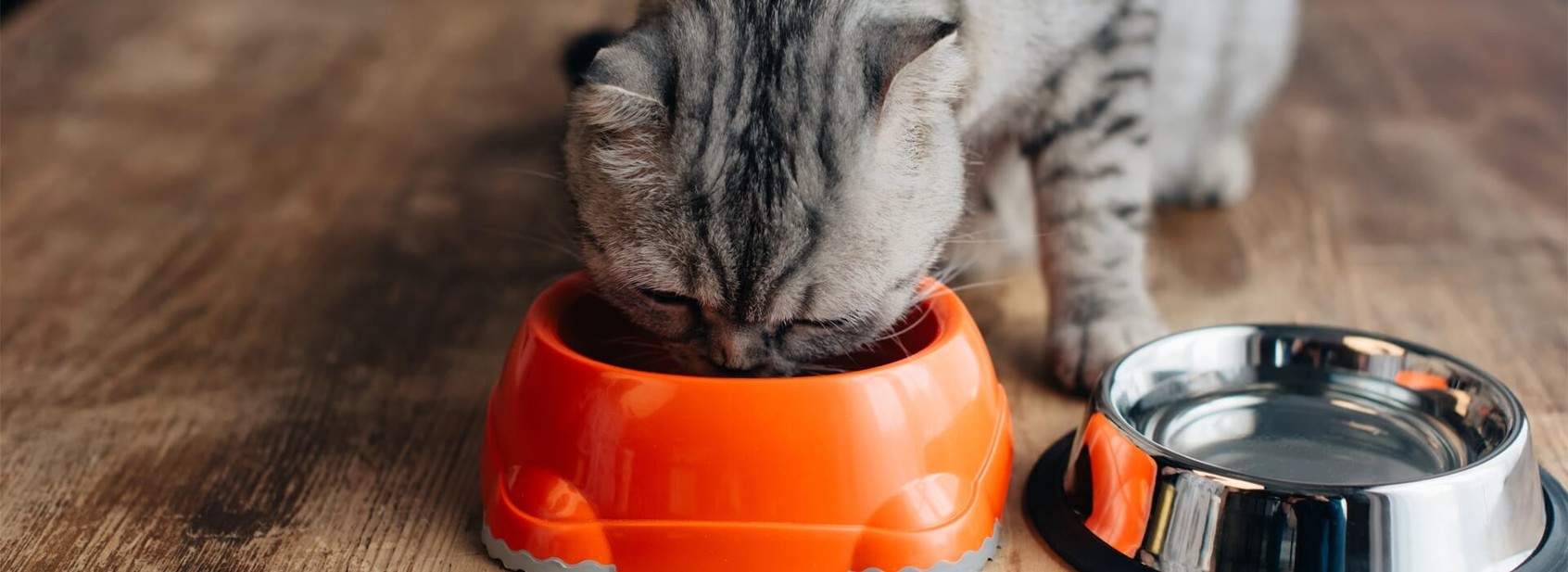In the wild, big cats know exactly what they need to eat. By feeding cats the right food at the right life-stages of life, we support their natural instincts as a carnivore and solitary hunter.Ensure kittens eat special kitten foodFor the first 4–5 weeks of their life, kittens get everything they need to survive from their mother. Kittens are normally weaned by 7 weeks old, but even from week 4 they can start eating a specially prepared kitten food like WHISKAS® PERFECT PORTIONSTM Kitten Chicken Pate Entrée.Kittens have a small tummy but a big appetiteKittens are cute and small, but they grow very quickly. In fact, they grow up to 15 times faster than a human baby! However, with a stomach that starts out as the size of your thumbnail, they can't eat very much in one go. That's why it's important to feed kittens small meals at regular intervals – up to 6 times a day to begin with. In the early days, we advise spreading the food out on to a plate so kittens learn to lick the food and get a taste for it.From kitten portions to cat portionsFrom about 4 months old, one WHISKAS® PERFECT PORTIONSTM Kitten Chicken Pate Entrée is perfect for a single tasty meal. Kittens should be fed 3–4 meals each day until they are 6 months old. After that, 2–4 meals a day are recommended. At 12 months old, kittens are ready for adult food, which can be fed twice a day. Most cats enjoy wet food being served morning and evening with a bowl containing their daily allowance of dry food being left out to graze on during the day.Cats are careful eatersIn the wild, big cats are careful eaters, avoiding anything that tastes “off”. Casts and kittens share those instincts and prefer every meal to be fresh and, served at room temperature in a clean bowl.Don’t suddenly change your cat’s dietIntroduce any new food gradually and a little at a time, as sudden changes might upset a cat’s sensitive digestive tract.Should cats drink cow’s milk? After kittens are weaned, they lose their ability to digest milk – so contrary to popular belief, cats should not be given cow's milk to drink! However, at WHISKAS®, we know that owners like to treat their cats to something special so we’ve created a safe version of milk that cats love.Encourage your kittens to drink waterCats need water, so it’s best to get them drinking it from a young age. Kittens have a super-sensitive nose and tongue that will easily pick up unfamiliar chemical smells. To encourage kittens to drink more, place their water bowl in a quiet spot away from the litter tray and away from anything with any odours that may offend them.A healthy coat often means a healthy catA shiny coat, bright eyes and supple muscle tone are all good signs that a kitten or adult cat is healthy. If you feed complete and balanced food that's right for every stage of your cat’s life, it will be reflected in their appearance.Feeding your cat a mixture of wet and dry foodCats seek variety in their food and enjoy different flavours, tastes and textures in their diet. Mixing wet and dry complete and balanced cat food, that is appropriate for your cat’s life stage and lifestyle, is a great way to keep your cat happy and healthy.Wet food encourages water intake. With high moisture content it can help keep your pet hydrated and helps to support a healthy urinary tract especially in cats.Wet food contains fewer calories per gram than dry food. It can help to maintain a healthy body weight.Wet food is closer in texture to the food that cats would naturally choose. It’s very palatable and easily digested making it the right choice for finicky eaters.Wet food delivers a variety of tastes and textures. Compared to dry foods, wet foods have higher levels of real meats and lower levels of carbohydrate sources, such as grains.The soft texture of wet food is easy for kittens and senior cats to chew.Benefits of Wet Pet Food Wet food encourages water intake. With high moisture content it can help keep your pet hydrated and helps to support a healthy urinary tract especially in cats.Wet food contains fewer calories per gram than dry food. It can help to maintain a healthy body weight.Wet food is closer in texture to the food that cats would naturally choose. It’s very palatable and easily digested making it the right choice for finicky eaters.Wet food delivers a variety of tastes and textures. Compared to dry foods, wet foods have higher levels of real meats and lower levels of carbohydrate sources, such as grains.The soft texture of wet food is easy for kittens and senior cats to chew.Benefits of Dry Pet FoodDry pet food is a concentrated source of nutrition and energy.Chewing the crunchy kibble helps support oral care health.Dry pet food is usually less expensive than wet to feed on a per-serving basis.Dry pet food is convenient, it does not require refrigeration after opening, and can be left out in a bowl all day without the risk of drying out or going stale. Makes traveling with your pet much easier, too.
READ MORE





